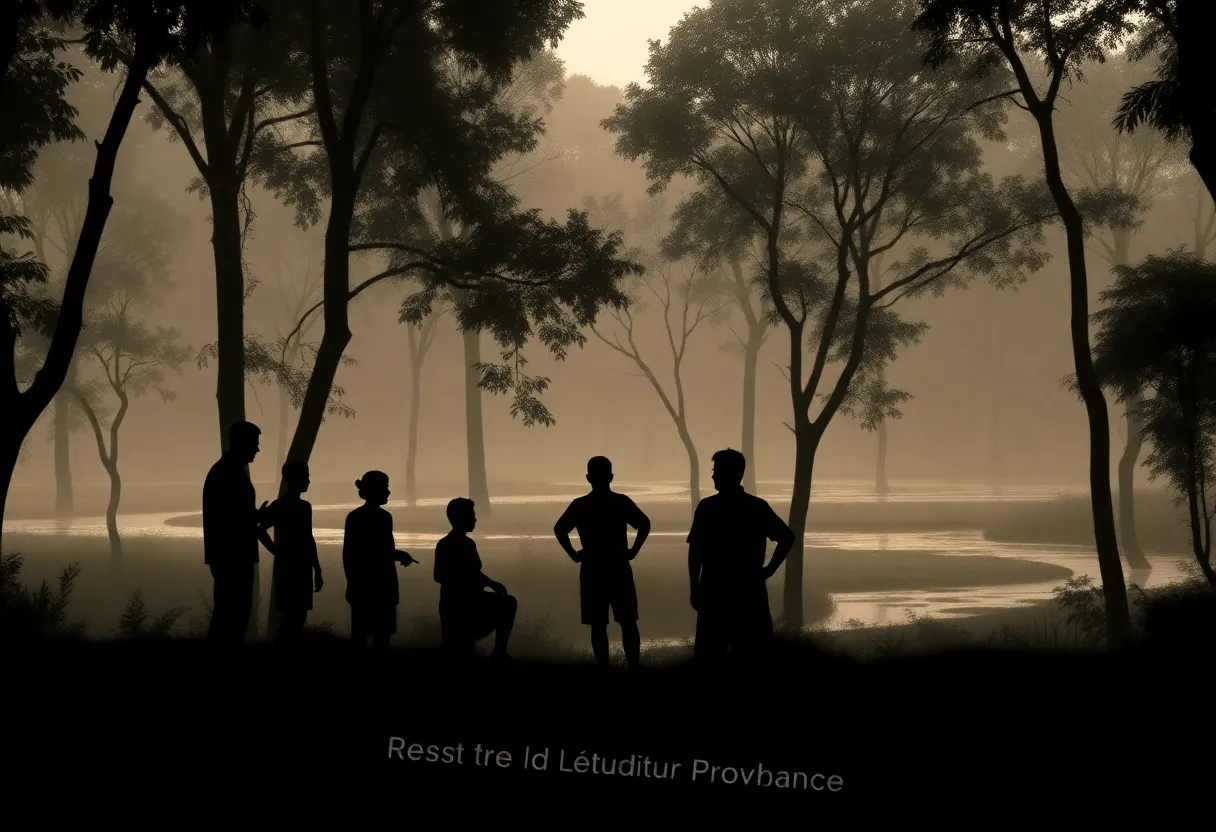

Affected individuals receiving care in a rural setting amid a health crisis.
Article Sponsored by:
Community Resource Consultants Inc. (CRCI) is a Michigan-based organization specializing in trauma rehabilitation medical case management. With over 34 years of experience, CRCI is dedicated to empowering survivors of catastrophic auto accidents to regain control of their lives and achieve both physical and emotional well-being. Their team of Licensed Master Social Workers (LMSWs) and Registered Nurses (RNs) are experts in navigating the complexities of today’s healthcare system, ensuring that survivors receive the necessary services for their recovery and rehabilitation. CRCI’s core values include advocacy, people, knowledge, and dependability, reflecting their commitment to being leading advocates and facilitators of long-term collaborative care.
Want to target the right audience? Sponsor our site and choose your specific industry to connect with a relevant audience.
Prominent brand mentions across targeted, industry-focused articles
High-visibility placements that speak directly to an engaged local audience
Guaranteed coverage that maximizes exposure and reinforces your brand presence
Interested in seeing what sponsored content looks like on our platform?
May’s Roofing & Contracting
Forwal Construction
NSC Clips
Real Internet Sales
Suited
Florida4Golf
Click the button below to sponsor our articles:
Sponsor Our ArticlesA mysterious illness has resulted in over 60 deaths and affected more than 1,000 individuals in Équateur Province, Democratic Republic of Congo. Symptoms reminiscent of multiple diseases have sparked intervention from health experts and the WHO. Initial assumptions of malaria have been challenged, as a potential contaminated water source has emerged as a cause. The outbreak began in the village of Boloko, raising alarms amid previous experiences with zoonotic diseases. Challenges mount amid a fragile healthcare system and resource limitations, prompting calls for improved monitoring and support.
In a shocking turn of events, more than 60 individuals have tragically lost their lives and over 1,000 are grappling with a serious illness in the Équateur Province of the Democratic Republic of Congo. This alarming outbreak has prompted health experts and the World Health Organization (WHO) to swing into action. With symptoms resembling several alarming diseases, the urgency to uncover the cause of this illness is palpable.
People affected by this mysterious illness are reporting a frightening range of symptoms. These include fever, severe headaches, chills, excessive sweating, stiff necks, muscle and joint pain, as well as coughing, vomiting, and even bleeding from the nose. To make matters worse, some victims have experienced episodes of diarrhea. This mixture of symptoms raises red flags, stirring memories of past outbreaks that have plagued various communities.
The WHO has indicated that the symptoms may result from a poisoning event, which challenges the local medical community’s initial thoughts that malaria could be the culprit. WHO’s director of emergencies suggests a troubling possibility: the illness may be linked to a contaminated water source in the villages affected. How unsettling it must be for the locals, who rely on these water sources for daily survival.
The situation originated in the small village of Boloko, with the illness swiftly making its way to nearby Danda village and further spreading to the larger community of Bomate. The preliminary investigation has revealed three children who consumed bat meat in January may have set off the outbreak. Sadly, these children developed severe hemorrhagic symptoms leading to their untimely deaths, illustrating the dire consequences of zoonotic diseases.
Bafflingly, victims’ symptoms appeared to mimic those associated with Ebola or Marburg, yet testing has ruled out these deadly pathogens. Health officials are now looking closely at several possible causes, including malaria, meningitis, along with conducting environmental sampling to pinpoint the source of this outbreak.
In just a short span, around 1,000 individuals exhibiting illness symptoms have been identified, with 52 unfortunate fatalities noted by February 19. The community’s plight worsened with the addition of 141 new illness cases reported in February within the Basankusu health zone, although thankfully, no deaths were recorded during this surge.
The challenges facing health officials are enormous. The region’s remote setting, coupled with a fragile national health system and funding cuts to foreign aid, have left disease response teams scrambling for resources. This isn’t the first struggle for this community; multiple disease surveillance interventions have taken place, indicating consistently high rates of illness and death.
Amidst this crisis, there’s a strong push for improved monitoring and effective case management strategies in the region. With disease outbreaks stemming from zoonotic transmissions on the rise in Africa, particularly in recent years, there’s an urgent need for local authorities to bolster their health response capabilities.
The WHO is eager to assist local health authorities by providing trained personnel dedicated to detecting and reporting new cases. However, community members remain concerned about funding limitations and available resources. The road ahead demands collaboration, awareness, and swift action to combat this ongoing health crisis.
Article Sponsored by:
Community Resource Consultants Inc. (CRCI) is a Michigan-based organization specializing in trauma rehabilitation medical case management. With over 34 years of experience, CRCI is dedicated to empowering survivors of catastrophic auto accidents to regain control of their lives and achieve both physical and emotional well-being. Their team of Licensed Master Social Workers (LMSWs) and Registered Nurses (RNs) are experts in navigating the complexities of today’s healthcare system, ensuring that survivors receive the necessary services for their recovery and rehabilitation. CRCI’s core values include advocacy, people, knowledge, and dependability, reflecting their commitment to being leading advocates and facilitators of long-term collaborative care.
News Summary Brenda Schroeder, RN, BSN, ACM, has received the DAISY Lifetime Achievement Award for…
News Summary On June 14, a nationwide movement named 'No Kings' is organizing protests against…
News Summary The Novi Fine Art Fair will take place at Twelve Mile Crossing At…
News Summary The Michigan Board of Canvassers has approved a referendum to potentially overturn laws…
News Summary The Michigan athletic department is preparing for significant budgetary challenges with a projected…
News Summary The Michigan House has passed a $2.3 billion higher education budget, implementing significant…